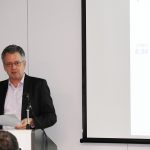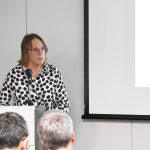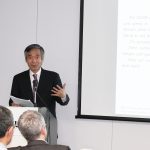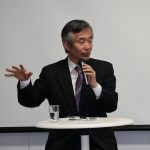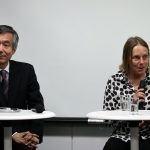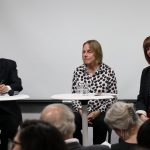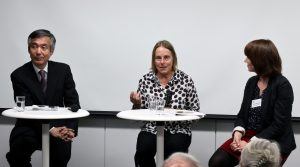
Download
Veranstaltungsort
Deutsches Institut für Japanstudien
Jochi Kioizaka Bldg. 2F
7-1 Kioicho, Chiyoda-ku
Tokyo 102-0094, Japan
Zugang
Anmeldung
The event is held in English.
After the presentation and the comment there will be time for Q&A and networking.
Admission is free.
Registration Form
We are sorry! Registration for this event is no longer possible.
Japanese Development Cooperation as a Political Tool
25. April 2018 / 18:30 - 20:00 Uhr
Marie Söderberg, Stockholm School of Economics
Naohiro Kitano, Waseda University
The world of development cooperation is changing quickly. There are several reasons for this. First of all, the objectives of the Sustainable Development Goals (SDGs) adopted by the United Nations go well beyond poverty reduction. Another reason is the fact that once dominant western thinking in the field of Official Development Assistance (ODA) is fading away as new donors, such as China, are advancing their positions. For Japan, this means increased competition in Southeast Asia. Consequently, many of the countries that used to be considered “graduated” from development cooperation are now recipients of aid again. This recent expansion, however, is not so much for reasons of poverty reduction but due to the strategic importance of recipient countries.
In this lecture Marie Söderberg will give a picture of how Japanese foreign aid now plays a central role as a foreign policy instrument. Taking the Philippines as an example, she analyses the implementation of Japan’s 2015 Development Cooperation on the ground.
Naohiro Kitano will contribute his expertise on China’s foreign aid. China’s ODA is undergoing a transformation as China is rapidly stepping up its activities and expanding its influence especially in Southeast Asia.
Marie Söderberg is director of the European Institute of Japanese Studies (EIJS) and adjunct professor at Stockholm School of Economics. Her research focuses on Japanese development cooperation, the connection of security and development policies, and Japan – EU relations. She has edited (with André Asplund) and contributed to Japanese Development Cooperation: The Making of an Aid Architecture Pivoting to Asia, London/New York: Routledge, 2017.
Naohiro Kitano is professor at the Faculty of Science and Engineering, Waseda University, and, until recently, was director of the JICA Research Institute. Besides several academic positions, he has held prominent positions in the Japan International Cooperation Agency (JICA), the Japan Bank for International Cooperation (JBIC), and the Overseas Economic Cooperation Fund, Japan (OECF). His research interests include development policy, China’s foreign aid, and city and regional planning.
